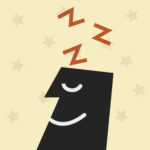05 Aug Will sleep apnea go away with time?
 Do you wonder if sleep apnea is a problem that will eventually correct itself? Sleep apnea can occur from time to time if a person drinks right before bed or takes certain medications, however this common sleep disorder normally does not go away on its own. Since sleep apnea can have such a profound effect on health and quality of life, our dentist offers treatment for this condition with a simple, comfortable oral appliance. Following are answers to frequently asked questions about sleep apnea.
Do you wonder if sleep apnea is a problem that will eventually correct itself? Sleep apnea can occur from time to time if a person drinks right before bed or takes certain medications, however this common sleep disorder normally does not go away on its own. Since sleep apnea can have such a profound effect on health and quality of life, our dentist offers treatment for this condition with a simple, comfortable oral appliance. Following are answers to frequently asked questions about sleep apnea.
Sleep apnea is caused by nasal and oral obstructions to the airways. For instance, nasal blockages or bulky, soft oral tissues can obstruct air passageways. During sleep, soft oral tissues relax into the throat and since a person is lying down, their breathing can become obstructed. Medications like antihistamines and sedatives, along with drinking alcoholic beverages, can contribute to apnea as well.
The most obvious symptom and effect of sleep apnea is sleep deprivation. Since patients literally stop breathing for short amounts of time throughout the night, one cannot naturally progress through each stage in the sleep cycle. This essentially prevents patients from achieving deep restful sleep, but it also can cause memory loss, fatigue, irritability, and even depression. Research also shows that this sleep disorder can affect heart health because it weakens the heart muscle. Apnea affects the body’s oxygen levels as well. Those with untreated sleep apnea have a higher risk for cardiovascular disease, mental illness, and stroke.
In the past, the first line of treatment for sleep apnea was a CPAP machine. CPAP stands for continuous positive airway pressure. This machine emits a steady stream of air through the nose and mouth to prevent airway obstruction. Unfortunately, many patients find CPAP to be uncomfortable and noisy. Our dentist offers a more comfortable option for treatment with SomnoDENT MAS. This oral appliance fits over the upper and lower teeth to reposition the jaw so that airways are not obstructed during sleep.
To learn more about how we can treat your sleep apnea disorder, call the office of Dr. Philip Kozlow today to schedule an appointment.
